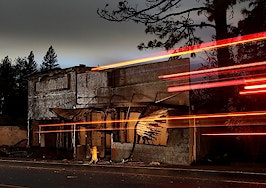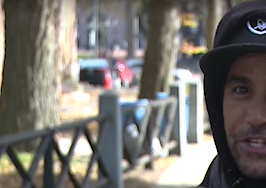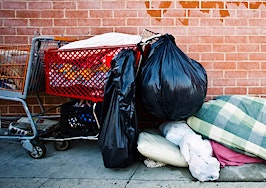Homelessness increased slightly in 2018, as rising rents continued to limit access to affordable housing despite a low unemployment rate.
Approximately 553,000 people were homeless on a single night in 2018, up 0.3 percent from the previous year, according to an annual report on homelessness released to Congress by the Department of Housing and Urban Development on Monday.
Despite the increase, the number of homeless is still down by 13.2 percent since 2010. HUD attributed this year’s uptick, in part, to 4,000 people living in emergency shelters set up in areas impacted by Hurricanes Harvey, Irma, Maria, and Nate; western wildfires; and other storms and events.

But the Wall Street Journal noted that the increase is disconcerting because the unemployment rate is hovering near a 50-year-low and wages are rising, albeit at a slow pace (real hourly wages grew 1 percent year over year from November 2017 to November 2018).
Housing cost increases that have outpaced income growth have led to an affordability crunch that has increased the risk of homelessness, according to a recent study by Zillow. This explains why the report, which analyzed HUD’s 2017 study — not HUD’s latest 2018 study — found that areas most vulnerable to rising rents, unaffordability and poverty had nearly half of people experiencing homelessness in 2017, despite covering only 15 percent of the U.S. population.
The U.S. median rent has risen 11 percent over the past five years, requiring a renter earning the national median income to spend 28.2 percent of their earnings on rent — up from 25.8 percent historically and far above the 17.7 percent that median-income households that buy a typical home today spend on their monthly mortgage payment, according to Zillow.
Zillow also estimates that homelessness was undercounted by about 115,000 people in 2017.
On a night in January 2018, most homeless people stayed in emergency shelters or transitional housing, while 194,467 went unsheltered, according to the 2018 HUD report. Even as the total number of homeless people increased, a HUD press release pointed out that the number of families with children experiencing homelessness and veterans who are homeless actually decreased year over year.

The significant decline in the number of homeless families in recent years — 29 percent from 2010 to 2018 — is largely due to HUD’s shift to supporting “rapid rehousing programs,” rather than “higher cost transitional housing,” according to HUD.
According to the HUD study, half of all people experiencing homelessness live in one of five states: California (24% or 129,972 people); New York (17% or 91,897 people); Florida (6% or 31,030 people); Texas (5% or 25,310 people); or Washington (4% or 22,304 people).
New York City topped the list of cities with the most people experiencing homelessness with 78,676, followed by Los Angeles City and County (49,955), Seattle/King County (12,112), San Diego City and County (8,576) and San Jose/Santa Clara City and County (7,254).
Even though Los Angeles has one of the largest homeless populations, new policies appear to have helped reverse four straight years of increases in homelessness, with the number of homeless people there falling by 4.7 percent from 2017 to 2018, the Wall Street Journal reported.
The newspaper noted that those policies include a program that will include the construction of 10,000 units for homeless — financed partly by a $1.2 billion bond approved by Los Angeles voters in 2016 — and a countywide sales tax that brings in about $350 million annually to support homelessness prevention, such as rental assistance, and to help people who are already homeless, such as mental-health support.
“Our state and local partners are increasingly focused on finding lasting solutions to homelessness even as they struggle against the headwinds of rising rents,” HUD Secretary Ben Carson said in a statement. “Much progress is being made and much work remains to be done but I have great hope that communities all across our nation are intent on preventing and ending homelessness.”







